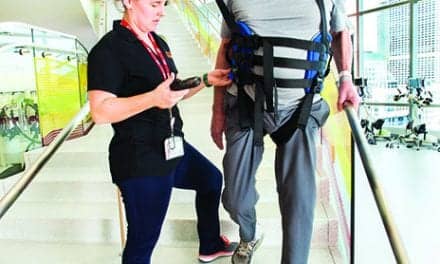Falls, and the injuries they incur, have a major impact on healthy life expectancy and quality of life, especially for older people. Older hospital patients treated in acute care hospitals—which provide 24-hour treatment—have a higher incidence of falling again after being discharged. These falls are more likely occur indoors, especially in frequently used spaces such as living rooms, bedrooms, kitchens, and bathrooms.
A research group led by Assistant Professor Tetsuya Ueda of the Graduate School of Rehabilitation Science at Osaka Metropolitan University conducted a study of 60 orthopedic disease patients with a fall history. The patients participating in the study were all aged 65 years or older and were treated at an acute care hospital. They were divided into two groups: a control group that received only general exercise therapy, and an intervention group that received the same exercise therapy and, at the time of discharge, additional fall prevention guidance with advice about navigating potential hazards, using each patient’s home floor plan. A follow-up survey was conducted to track the patients’ falls and near-falls over the next 6 months.
The results of the survey showed that 7.7% of the control group experienced a fall within two months after discharge, while no falls occurred in the intervention group. The intervention group also had significantly fewer near-falls within the first three months; no significant difference was observed between the two groups in the remaining months. The study was published in the International Journal of Environmental Research and Public Health.
“The results of using patients’ home floor plans to instruct patients at the time of discharge to prevent them from falling again suggests that preventive intervention may be useful in the early post-discharge period,” said Dr. Ueda. “In preparation for a rapidly aging society, fall prevention measures that can be widely adopted need to be established in busy acute care hospitals with a high patient turnover.”
[Source(s): Osaka Metropolitan University, EurekAlert]





